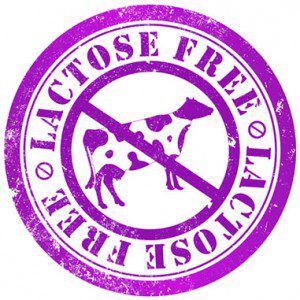More and more people are cutting milk and other dairy products out of their diet for health reasons. With the National Eczema Week approaching (13-21 September), Men’s Running look at the science and what a dairy-free diet can do for you.
Eczema is a long-term, chronic condition that causes the skin to become itchy, red, dry and cracked. It varies in severity and whilesome people are only mildly affected, severe symptoms can include cracked, sore, bleeding and inflamed skin. The number of people diagnosed with eczema has increased in recent years and currently, about one in five children and one in 12 adults in the UK have eczema.
Cow’s milk allergy is a risk factor for many allergic conditions including asthma and eczema. Eczema can be caused by several environmental factors including dust mites, grasses and pollens, stress and certain foods. It usually starts in infancy and in about 10 per cent of cases it is triggered by foods including milk, eggs, citrus fruit, chocolate, peanuts and colourings. The most common food triggers are cow’s milk and eggs, but many other foods including soya, wheat, fish and nuts can act as triggers. When treating eczema, cow’s milk allergy should be considered first.
Babies with colic often have problems caused at least partially by casein or whey allergy (both whey and casein are components of milk). Cow’s milk or cow’s milk formula is often the first food babies are exposed to and apart from digestive problems can elicit an immune reaction. Obstetrician-Gynaecologist Dr Victor Khayat says: “One theory is that the body develops antibodies to the milk and thus creates an immune response that presents as eczema-like lesions, asthma symptoms and even more serious anaphylaxis, which can be life-threatening.”
Eczema can also occur in people with high sensitivity to cow’s milk proteins or dairy intolerance. In any case of eczema, milk should be the first on the list of potential food triggers. In a recent study, milk allergy or sensitivity was the culprit for 56 per cent of the studied group.
The only reliable treatment for cow’s milk allergy is to avoid all cow’s milk and dairy products including: milk, milk powder, milk drinks, cheese, butter, margarine, yogurt, cream and ice cream. Also products with hidden milk content should be avoided. Food labels that list any of the following ingredients also contain some cow’s milk or products in them: casein, caseinates, hydrolysed casein, skimmed milk, skimmed milk powder, milk solids, non-fat milk, whey, whey syrup sweetener, milk sugar solids.
It might seem a daunting prospect having to read the ingredients labels but most supermarkets now produce ‘free-from’ lists of products and many supermarkets also have their own-label free-from range. There are even iPhone or Android phone apps available now to help you identify ingredients by scanning the product bar code. Dairy-free ice creams, spreads and yoghurts and dairy-free cheeses are just some examples. Calcium-enriched soya, rice, almond, coconut and oat milks can be used as alternatives to cow’s milk.
For information on how to be dairy-free, go to: www.whitelies.org.uk/dairyfree where you can download a practical guide (including suitable products lists) for free or order a paper copy.







